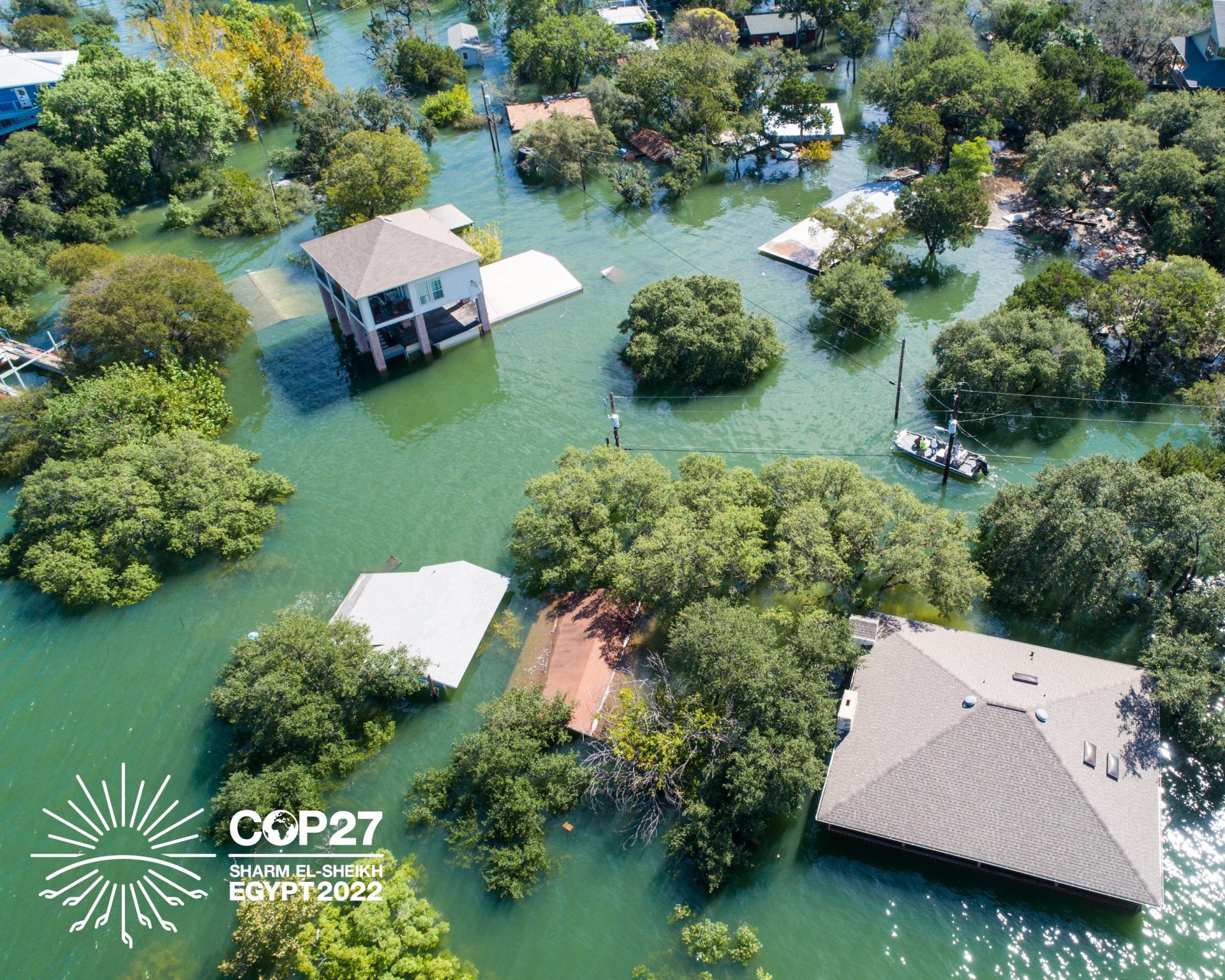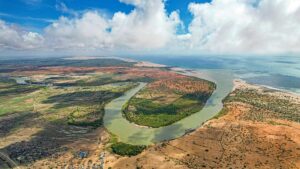Leaving no one behind at COP27
As COP27 fast approaches a slew of reports highlight how much work is yet to be done to meet the goal of reducing projected warming to 1.5 degrees. Water must be at the core of climate policy and action. Inclusive water governance has never been more urgent.
We feel the effects of the climate crisis through water, but not equally. A UN women article highlighted how women and girls are disproportionately affected by climate change while another report stated that every child will experience global warming by 2050. A worsening climate and water crisis also jeopardizes human rights.
Our cross-cutting issues gender equality, youth empowerment and the human rights-based approach guide all of SIWI’s work. By mainstreaming these perspectives into all projects and programmes, we contribute to inclusive and effective water governance. This can in turn contribute to more sustainable and equitable climate policy for people and the planet.
Strengthening inclusion
By mainstreaming gender equality, a human rights-based approach and youth empowerment into all projects and programmes, we contribute to inclusive and effective water governance.
Cross-cutting issuesGender Equality
“Climate change is sexist” US politician Nancy Pelosi told COP26. Last year the UNFPA shared five ways climate change afflicts women and girls including leading to more gender based violence and an increase in child marriages. This latter also seen in a worrying trend identified by UNICEF in drought-stricken areas of Horn of Africa. In the regions of Ethiopia worst affected by the drought, child marriage has on average more than doubled in the space of one year, according to UNICEF analysis.
We cannot leave anyone behind and we need all hands on deck to solve the climate crisis – a gender lens makes both a reality. We need to include the needs, knowledge and vulnerabilities of women in our adaptation strategies.
Here are some actions to ensure gender equality is a cornerstone in climate action:
- Consult communities and women’s groups before implementing adaptation measures to avoid unintended negative social effects.
- Make sure that information around adaptation, such as climate-resilient crops, reaches women. Access to information is often a barrier, considering the high illiteracy levels among women.
- Ensure that women are involved in decision-making and consider the social and legal barriers that are keeping them out. Women participating in decision making processes related to water investment projects.
- Integrate gender issues in water investment plans: investment projects addressing gender inequality issues and these investment projects’ commitment to empowering women in decision making
- Undertake third party gender analyses for investments in the water sector
- Assess degree to which various underserved and vulnerable sections of the population are included in water sector policies
Human Rights-Based Approach
Applying a human rights-based approach (HRBA) means putting people centre-stage. This is especially important when increasing water scarcity requires difficult allocation prioritizations. It can help prevent a vicious cycle where the poor are at risk of falling further and further behind since they tend to be disproportionally affected by climate change and environmental degradation. This was clear during the discussion on loss and damage during COP26, the effects of which can be detrimental for human rights.
The Unitarian Universalist Service Committee (UUSC) concluded: “COP26 failed in advancing action and commitments that are required to protect the human rights and dignities of communities who are already at risk around the world.”
Societies and communities will need to undergo huge transformations to adapt to and mitigate climate change but these cannot be at the disproportional cost of vulnerable people. A term that has grown in use in recent years is climate justice. Its central argument is a reshaping of climate action from a technical effort to cut emissions into an approach that also addresses human rights and social inequality.
Adopting a Human Rights Based Approach will improve the long term sustainability of climate action by broadening its scope:
- By considering the human right to a healthy environment, a source to sea approach can ensure that communities up and downstream benefit from climate action.
- The climate crisis hinders full realization of the human rights to clean water and sanitation – for instance, drought and flooding can disrupt delivery of services. Any action taken in the WASH space must factor in climate resilience.
Read the article from OHCHR about the importance of integrating human rights at the UNFCCC.
Youth Empowerment
Once youth are fully equipped to realize their potential, youth can become creators, leaders, and entrepreneurs in addressing the challenges of the sustainable management of water resources in a changing world and global climate, and will contribute to the implementation of the Sustainable Development Goals.
We must ensure youth are empowered to play a central role in climate action. Both planning and implementation is crucial to tackling the climate crisis:
- Local knowledge held by youth is crucial to ensuring actions can be implemented, as young people are often the primary water bearer in households.
- As shown by the innovations in the Stockholm Junior Water Prize, young people have concrete solutions to the water issues they see around them.
- Inclusive processes have a higher chance of long term success. It’s that simple and climate action cannot afford to fail.
SIWI’s Juanita Ayala will be participating 7th UN Climate Change Conference of Youth (COY17). Juanita will attend sessions and provide input that builds on the importance of developing mechanisms and creating spaces on how to advance in the participation ladder, particularly for youth. One way this can be done is by developing knowledge, to strengthen water governance, improving it with youth engagement.
Follow SIWI at COP
To share new knowledge about water and climate, SIWI will be taking active part in the global climate conference COP27 between 6 and 18 November. Join our programme online to learn about a promising new generation of climate solutions.
Learn More








